Overview
- The U.S. Does Not Meet the Definition for Democracy
- The Founders Did not Agree with the Values and Practices of Democracy
- The Founders Feared, Excluded, & Exploited the Masses
- The Role of the U.K.
- The Role of the U.S.
- Elites Maintain Structural Inequities for Power and Profit Poor
1. The U.S. Does Not Meet the Definition of Democracy
Like many other nations around the world, the United States does not meet the requirements for democracy. Modern republics lack two factors that are necessary for a democratic government to exist — continuous participation and accountability for public outcomes.
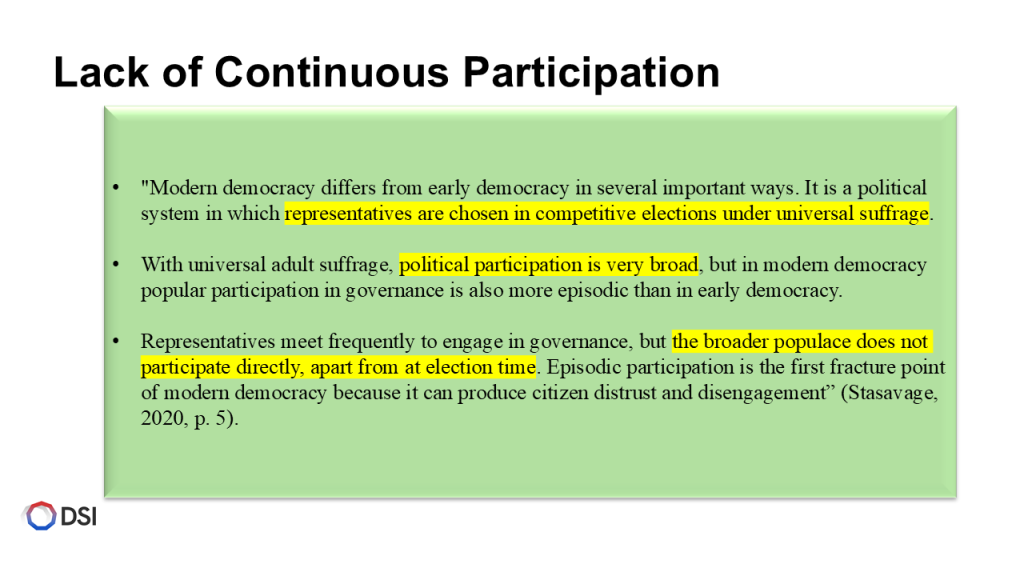
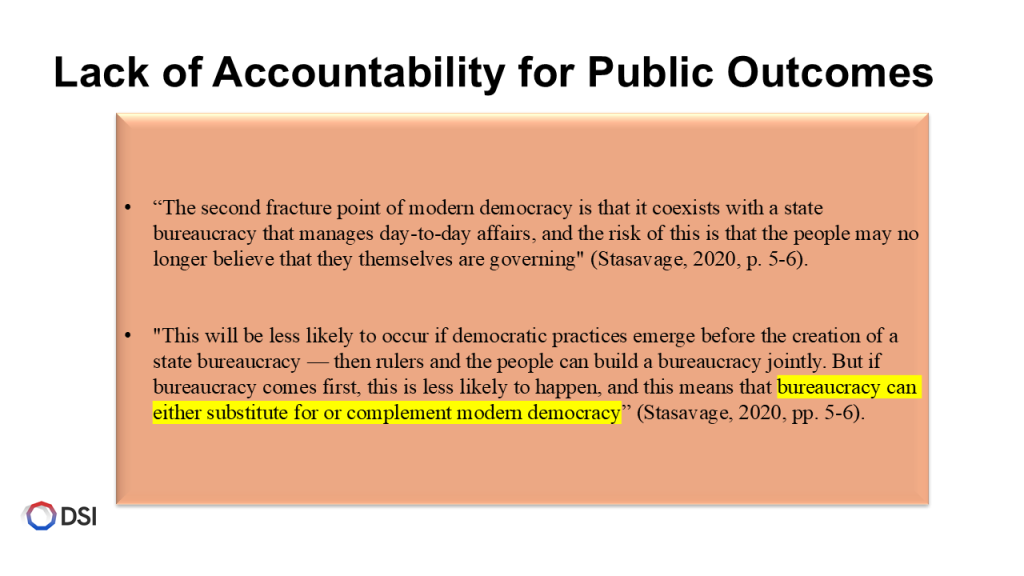
2. The Founders of Modern Republics Did Not Agree with the Values and Practices of Democracy
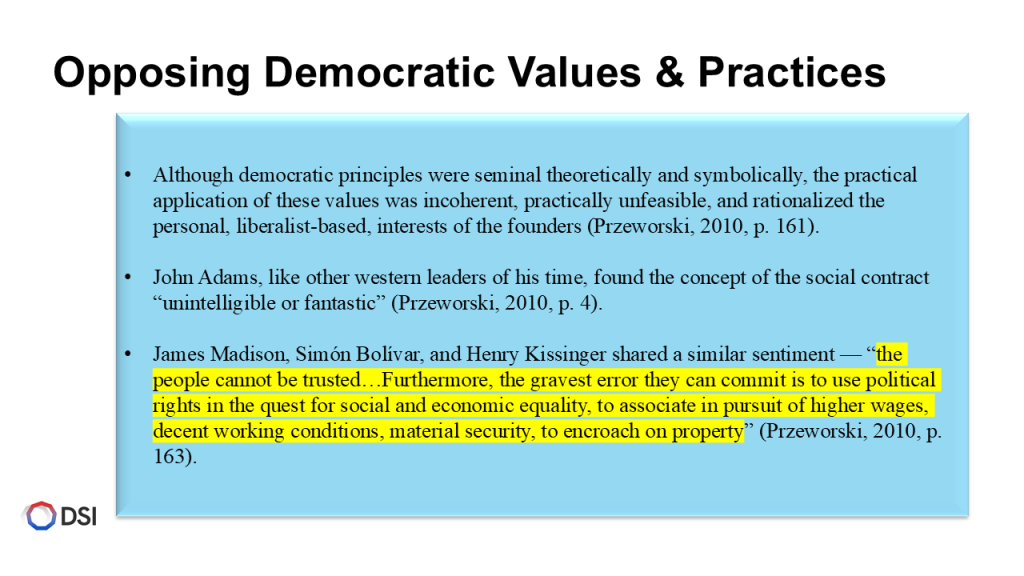
3. The Founders Feared, Excluded, & Exploited the Masses
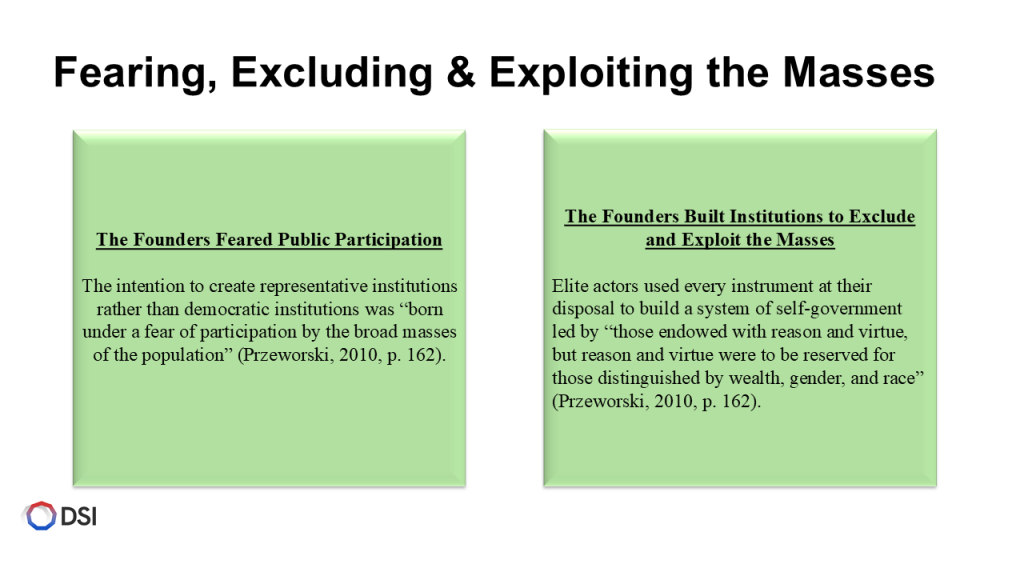
4. How the United Kingdom Contributed to the Rise of Modern Republics
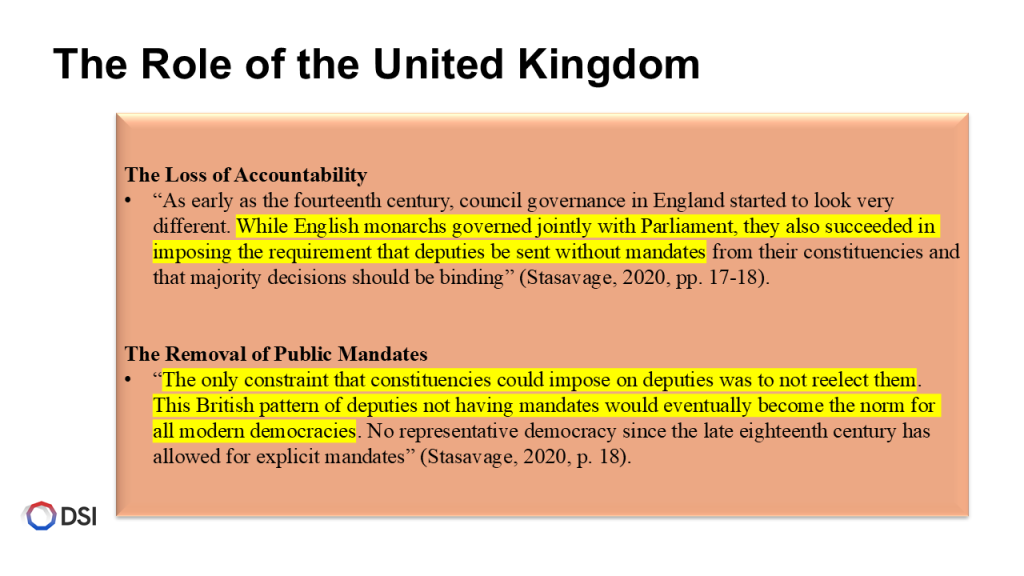
5. How the United States Contributed to the Rise of Modern Republics
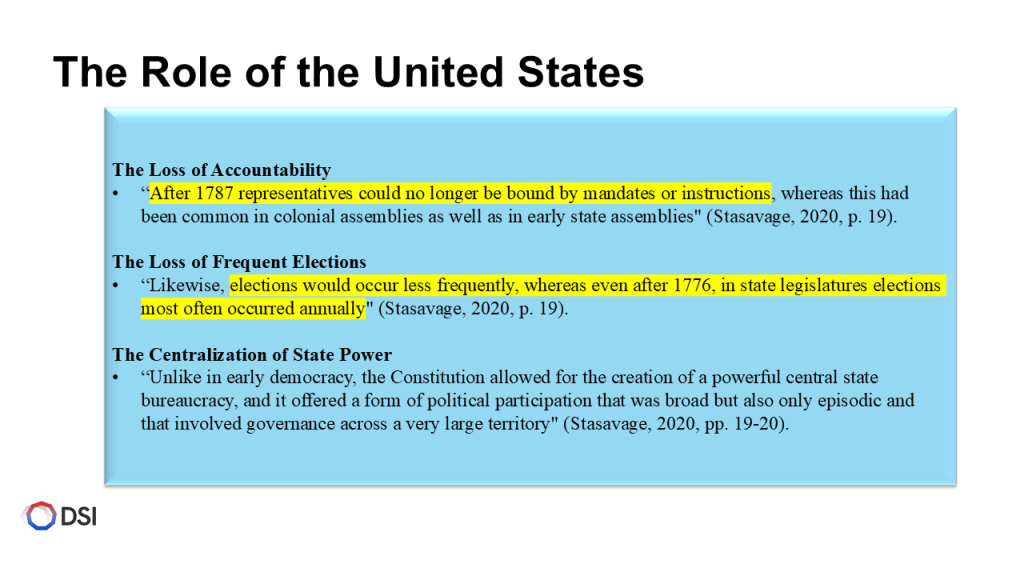
6. Political and Economic Elites Profit from Maintaining Structural Inequities and Poor Public Outcomes
The lack of public unity, continuous participation, and access to accountability mechanisms is visible through the persistence structural inequities and injustices in a nation that claims to uphold the rule of law and protect the rights and liberties of all citizens. Check out these resources that details how political and economic elites perpetuate and benefit form structural inequities in the Atlanta, GA and the United States more broadly:
- Kerner Commission Report on the Causes, Events, and Aftermaths of the Civil Disorders of 1967
- The Legend of the Black Mecca: Politics and Class in the Making of Modern Atlanta
- The Color of Law: A Forgotten History of How Our Government Segregated America
- Red Hot City: Housing, Race, and Exclusion in Twenty-First-Century Atlanta
References
- Przeworski, A. (2010). Democracy and the Limits of Self-Government. Cambridge: Cambridge University Press.
- Stasavage, D. (2020). The Decline and Rise of Democracy. Princeton: Princeton University Press.